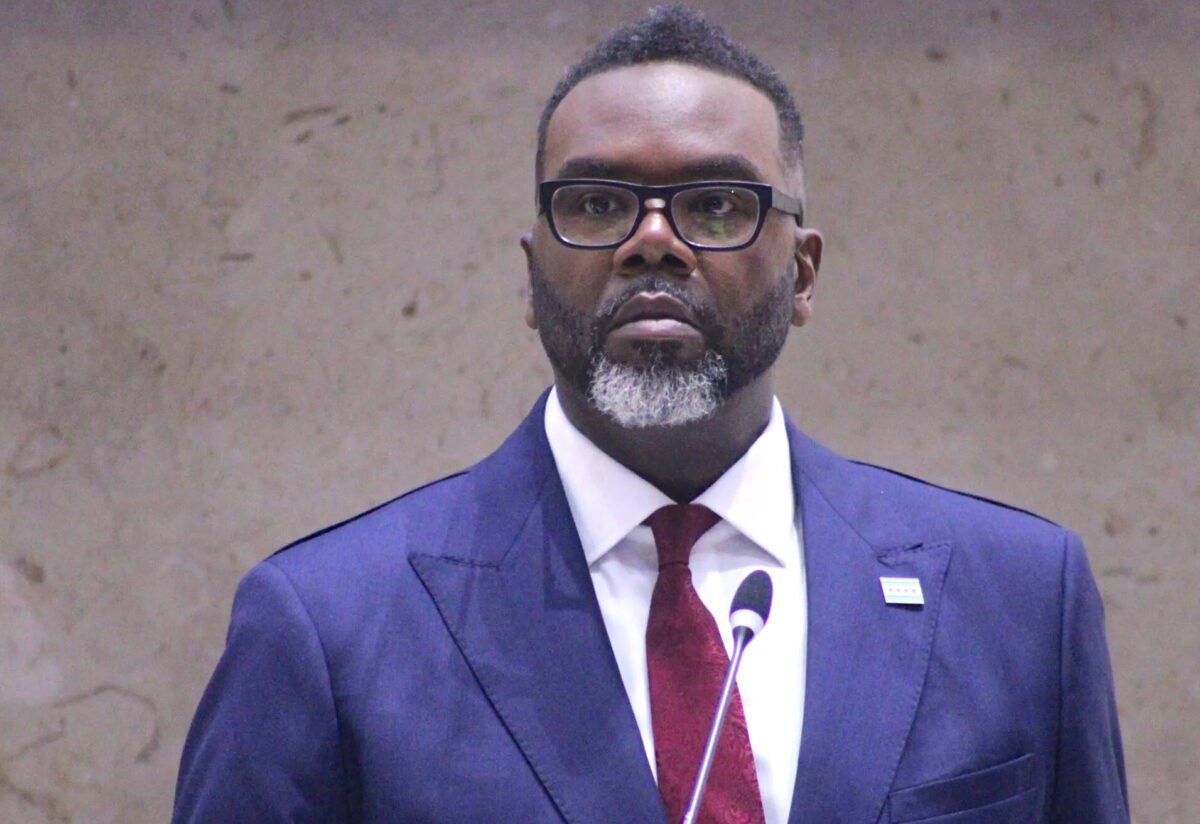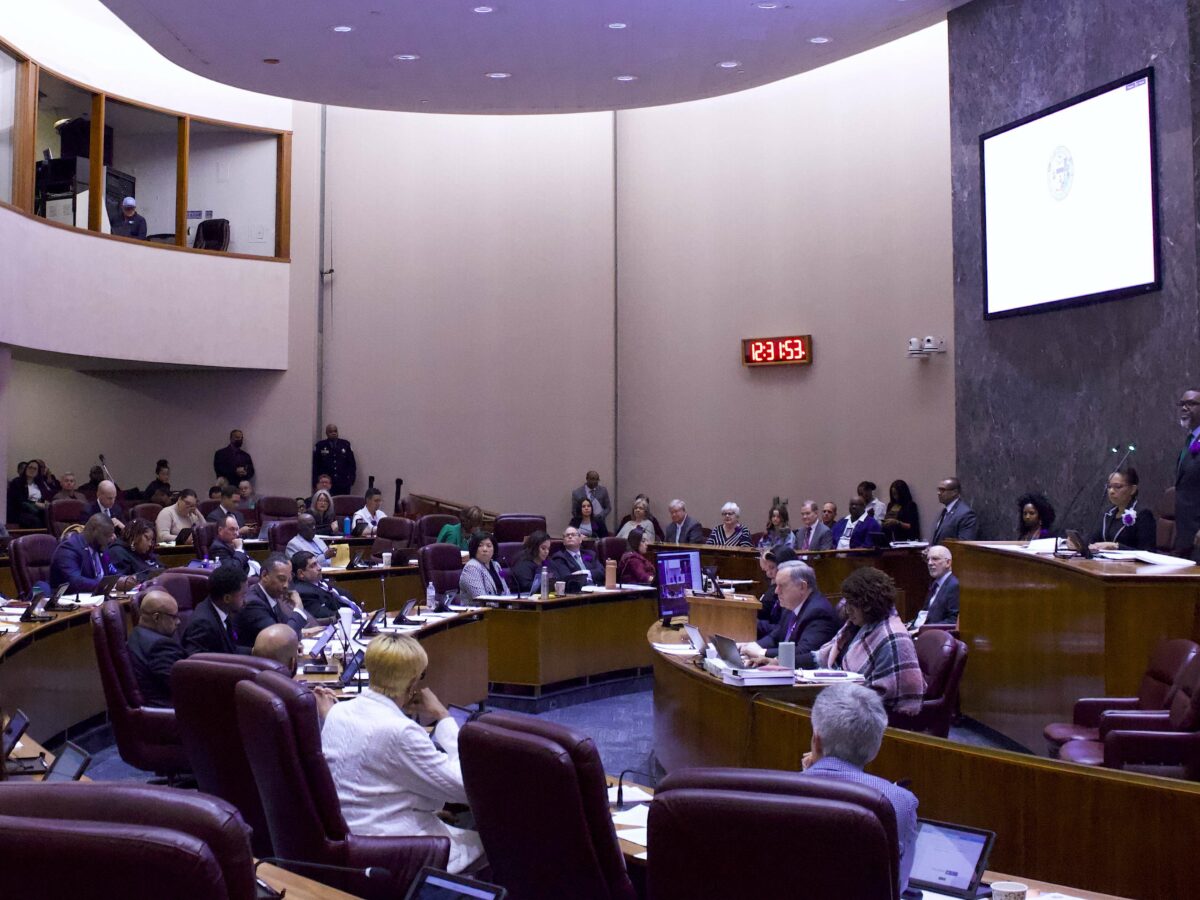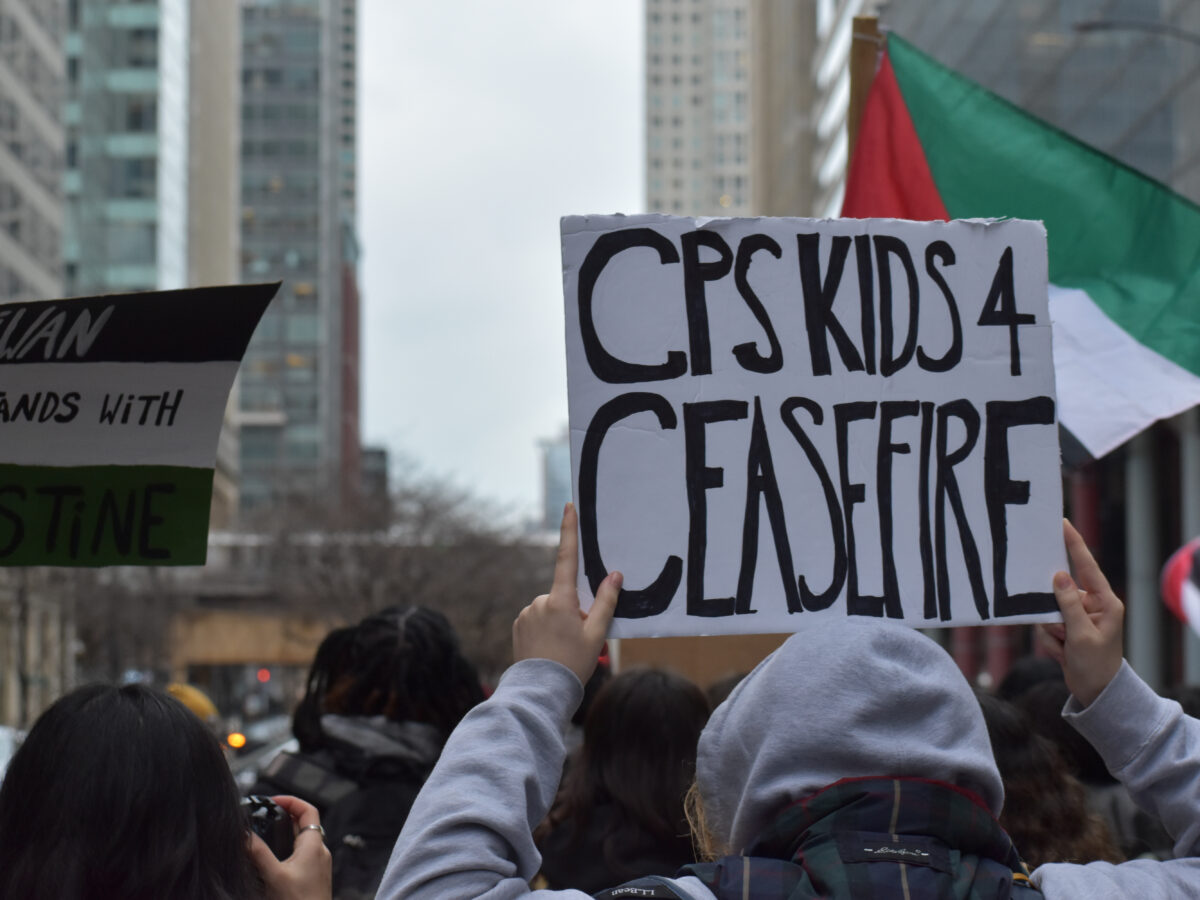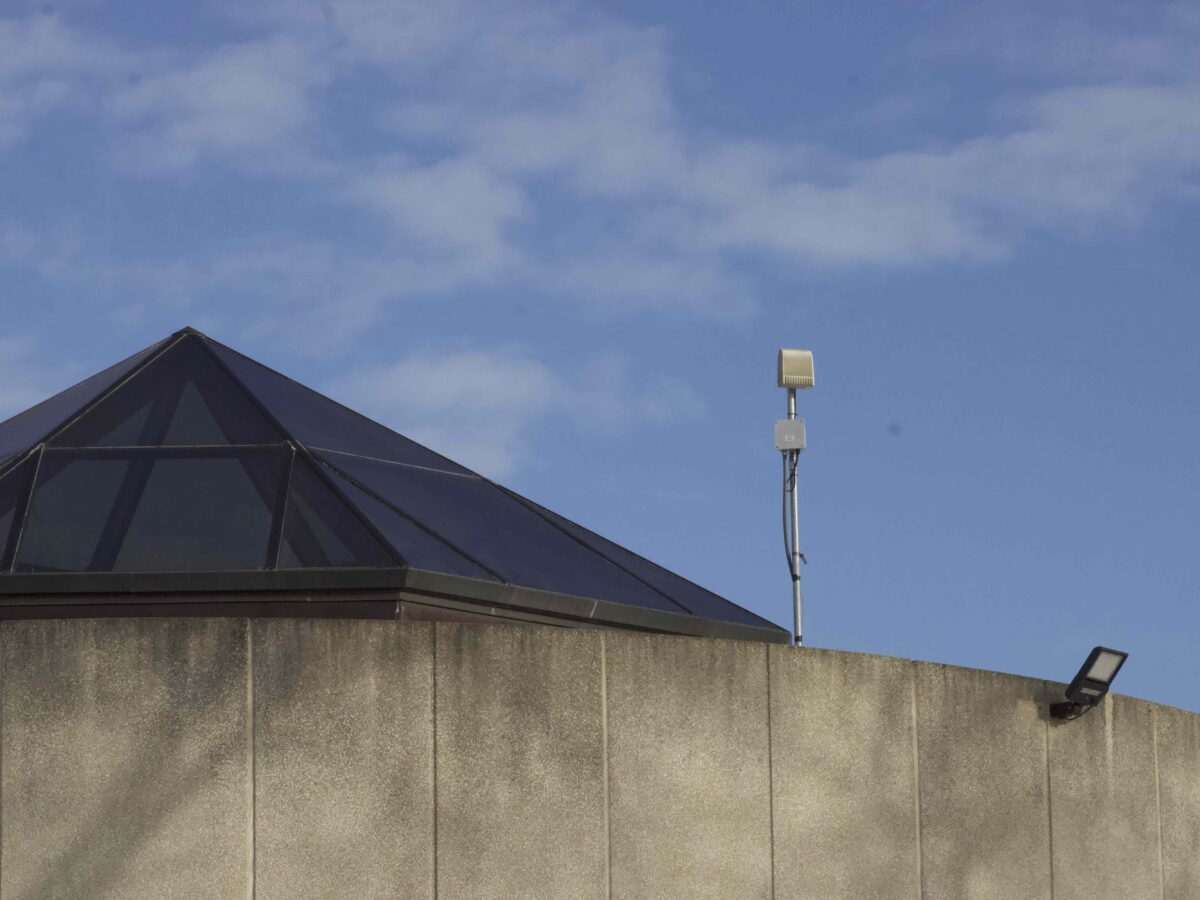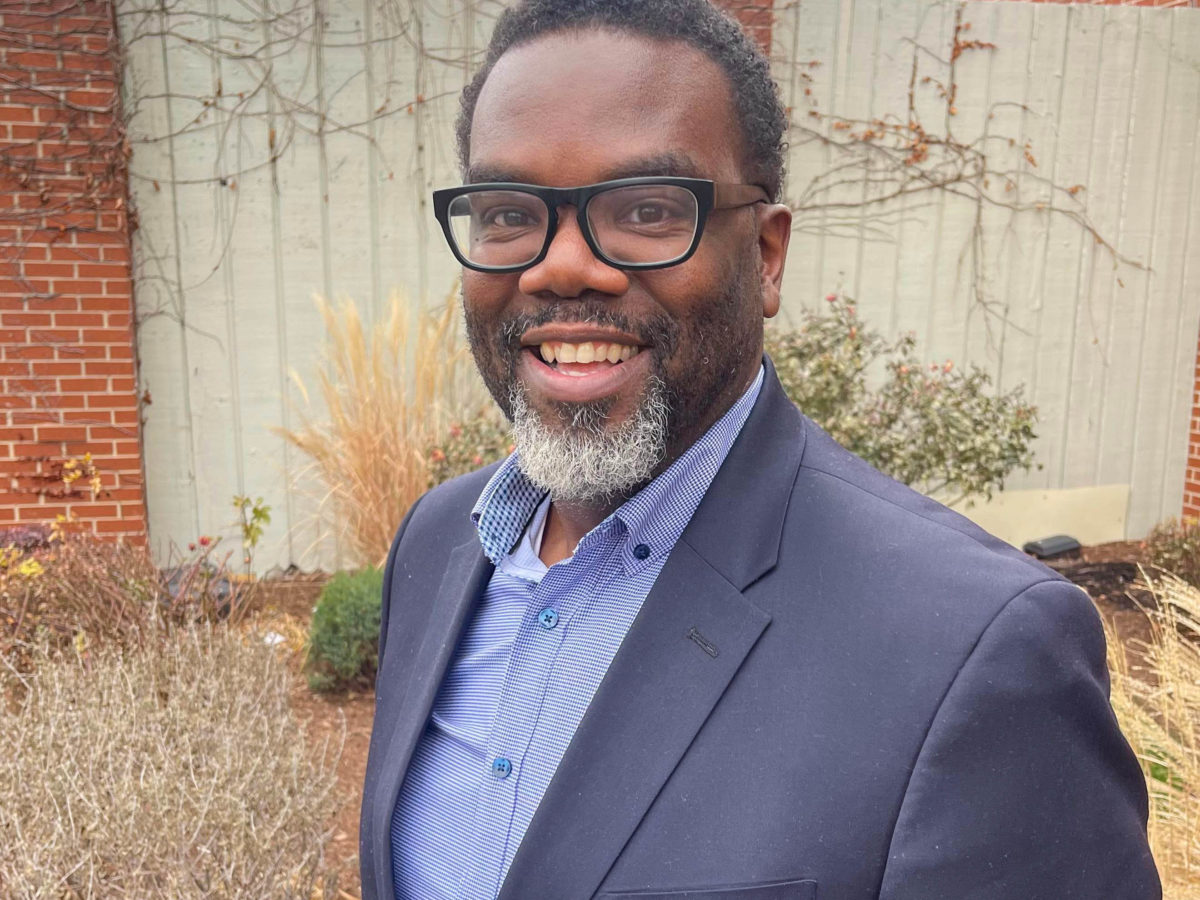In a brief but wide-ranging interview with the Weekly last Friday, Mayor Brandon Johnson touted his first-year progressive wins and said that previous administrations’ “intentional” disinvestment from marginalized communities is the biggest challenge he faces as mayor. He also said his organizing background has informed how he has staffed his administration and his approach to public safety and education.
“We’ve been able to organize a diverse administration, a diverse City Council, and progressive legislation that speaks to the people of Chicago who need our diverse leadership in order for their ideas and aspirations to actually be realized,” Johnson said.
The mayor also affirmed his commitment to ending the City’s relationship with ShotSpotter, and promised to ensure the company’s more than 2,500 gunshot-detection devices blanketing Chicago’s South and West Sides are removed on his watch.
Asked what strengths he brings to the Fifth Floor from his time as organizer, Johnson said the first thing that came to mind was assembling an administration that is racially diverse. He rattled off stats to back the claim: 43 percent of his administration are Black people, about 25 percent are Latine, and roughly 29 percent are white, he said. In March, a Sun-Times analysis found similar demographics among his top officials: 45 percent Black, 25 percent Latinx, and 30 percent white. The mayor added that more than half of his administration is made up of women.
Johnson also pointed to his picks for City Council chairs, calling the group the “most diverse chairs that we’ve ever seen in the history of Chicago.” Nine of the Council’s twenty committees are chaired by Black alderpersons and six by Latinx alderpersons. Five are chaired by white alderpersons (one of whom, Debra Silverstein, is the body’s sole Jewish member).
The mayor said he’s been “effective” at moving progressive legislation through the Council, some of which was stalled under former Mayor Lori Lightfoot. He noted the passage of the One Fair Wage ordinance, which will gradually raise tipped workers’ base pay over the next five years, and the Paid Leave and Paid Sick Leave ordinance, which mandates the accrual of paid time off. Both ordinances will take effect July 1.
He also touted his administration’s efforts around reopening mental health clinics and securing a five-year, $1.25 billion bond for economic development, as well as his push to convert office buildings in the Loop to residential units. The plan, which would create 1,000 apartments on LaSalle St., more than 300 of which will be “affordable,” meaning residents who earn 60 percent of the Chicago area’s median income (or $67,260 for a family of four) will be eligible to rent them.
“Who in the history of Chicago would have ever imagined that you would have ‘downtown’ and ‘affordability’ in one sentence, right?” Johnson said. “In order for us to be better, stronger, and safer…we have to invest in [people], and that’s exactly what I’m doing.”
The mayor noted his efforts to expand public mental health services, which include a recent announcement that the City will reopen a public mental health clinic in Roseland, one of fourteen that have been closed since 1989, and add mental health services at facilities in Pilsen and Garfield Park.
He also said the City’s youth summer jobs program is “in a position to hire up to 28,000 young people,” which would be an increase of about 4,000 youth jobs from 2023.
In response to a question about what challenges his time as an organizer may have not quite prepared him for, Johnson cast a stern eye on previous mayors, saying they had been running the city “into the ground” with “clear disinvestment” and systemic racism.
“It was intentional. Schools were closed. Public housing was shut down. Pensions were raided. You had the parking meters sold off. You had the Skyway sold off, right? So you had real intentional disinvestment from previous administrations,” he said. “And so, of course, the challenge is undoing forty years of systemic racism. That’s not something that you can turn around overnight. We didn’t get it overnight. So those challenges are real. The gross neglect and the intentional disinvestment by previous administrations have left this city with the type of challenges that I’m embracing now.”
related story
City Council Advances Progressive Goals
When the interview turned to education, the mayor did not directly answer a yes-or-no question about the possibility of closing public schools during his tenure. Instead, Johnson noted that he participated in the 2015 hunger strike that forced then-Mayor Rahm Emanuel to reopen Dyett High School on the South Side, and offered a quote from W.E.B. DuBois.
“The moratorium already exists,” he said. “I fought to make sure that it happened.”
A 2021 state law backed by the Chicago Teachers Union (CTU) that set in motion the creation of an elected Board of Education also placed a moratorium on school closures until 2025. In April, Margaret Croke, a Democrat whose district includes Lakeview and Lincoln Park, introduced a bill that would have extended the moratorium until 2027, when the board will be fully elected. After the bill passed the Illinois House, Johnson asked Senate President Don Harmon to hold the bill, and Harmon obliged.
“Public education for all at public expense was, in the South, a Negro idea,” DuBois wrote in 1935 in Black Reconstruction in America. Johnson said these words were “the most important thing to remember” during the discussion about his vision for education. “I said we’re going to invest in neighborhood schools,” he said, adding that he’s the first Chicago mayor to send their children to CPS schools and to have taught in CPS. “That is what we should be focusing in on, because that’s what I promised to do.”
Johnson said his vision for education is greater than the CTU contract or even the school district itself. “This is about someone who is the mayor of the city of Chicago, who is a descendant of slaves, whose greatest aspiration is to make sure that our public accommodations work for everyone,” he said. “Of course keeping schools open is a top priority, but it has to be more than [that]. It has to be about investing in those schools, investing in those children, investing in those families, having sustainable community schools so that they work for everyone.”
He added that ensuring the City is creating “economic opportunities for good paying jobs” for families experiencing housing insecurity is also part of that vision. “This is not just simply about a moratorium” on school closures, he said. “This is about an overall vision for public accommodations.”
On Friday, CPS (which faces a looming $400 million deficit as COVID-19 funds dry up) and the CTU began holding the first public contract negotiations in history; the first round of talks focused on climate solutions. Johnson bristled at a question about whether, given his previous role in the union, the public could trust that the outcome of the negotiations hasn’t been predetermined.
“I think you have to read past some of the headlines that even you might be responsible for creating,” he said. “If you believe that I come from the CTU after I just told you that I’m a descendant of a slave, you’re missing what I’m saying, and I don’t mean any disrespect. What I’m saying is that the harm that has been caused by previous administrations is quite severe.… I have a responsibility to make sure that I show up for the people who need me to show up for them. And I’m talking about people who have been placed at the margins.”
Johnson, who has repeatedly affirmed his support for progressive causes—including by casting a tie-breaking vote to pass a resolution calling for a ceasefire in Gaza—said that he’s been willingly arrested while protesting as a CTU organizer. Under his watch as mayor, the City’s handling of nonviolent protests by progressive activists has been inconsistent. Chicago police have issued citations to Jewish protesters who blocked traffic; refused to assist University of Chicago police in clearing a pro-Palestine student protest camp; and sent SWAT and tactical cops along with patrol officers to clear similar encampments at the Art Institute and DePaul University. The police cleared the DePaul encampment while Johnson was in Canada on a trade mission.
Protests are expected to ramp up in August, when the Democratic National Convention descends on Chicago. Block Club reported earlier this month that CPD superintendent Larry Snelling, a Johnson appointee, said that protesters’ right to assemble under the First Amendment “is only there if you’re not committing a crime, and you can be acting out peacefully but still breaking the law.”
Asked whether he agrees with the superintendent, Johnson said, “Constitutional policing is the standard, period, point blank. And protecting First Amendment rights, that’s fundamental to our democracy, and that’s what I expect from my police superintendent and that’s what he is delivering. Ensuring that people have safe and peaceful protests, that’s the most important element here: safe and peaceful. And I believe in the fundamental right to be able to protest, especially because, again, my existence is because people protested in this country.”
In January, Johnson announced he would cancel the City’s contract with ShotSpotter, a controversial gunshot-detection technology company, in September. Since then, alderpersons have pushed back on the decision, passing legislation that they say gives the City Council final say on the contract. Johnson has said the legislation is dead on arrival because the City’s procurement process leaves the decision solely with the mayor.
Last month, a Weekly investigation revealed that ShotSpotter not only doesn’t always remove its gunshot sensors when contracts expire, but in some cases continues listening and collecting data, which it has made available to police departments in cities where contracts lapsed. The City’s contract with ShotSpotter requires the company to “make every effort to assure an orderly transition to another provider of the services, if any, orderly demobilization of its own operations in connection with the services.”
Johnson pledged to ensure the ShotSpotter sensors are removed under his watch. “I’m gonna remove them,” he said. “I’ve made it very clear that, as you know, ShotSpotter has proven to be ineffective, and so we will remove those devices.”
Earlier this month, Johnson made appearances at House Fest in Millennium Park, where some in the crowd booed the mayor while others, all smiles, took selfies with him. The Weekly attempted to pin Johnson down on a matter of taste: of Chicago’s mainstay subgenres, does he prefer Deep House or Juke?
Johnson demurred. “It’s because my kids might read this one day,” he explained. “So how about just say this: I bob my head a lot. Because if I admit to juking…I got a daughter, and she’s gonna make fun of me. You know, ‘Daddy can’t juke,’ or whatever. But deep down, I think that everyone has a juke inside of them, don’t they?”
Jim Daley is the Weekly’s investigations editor.

